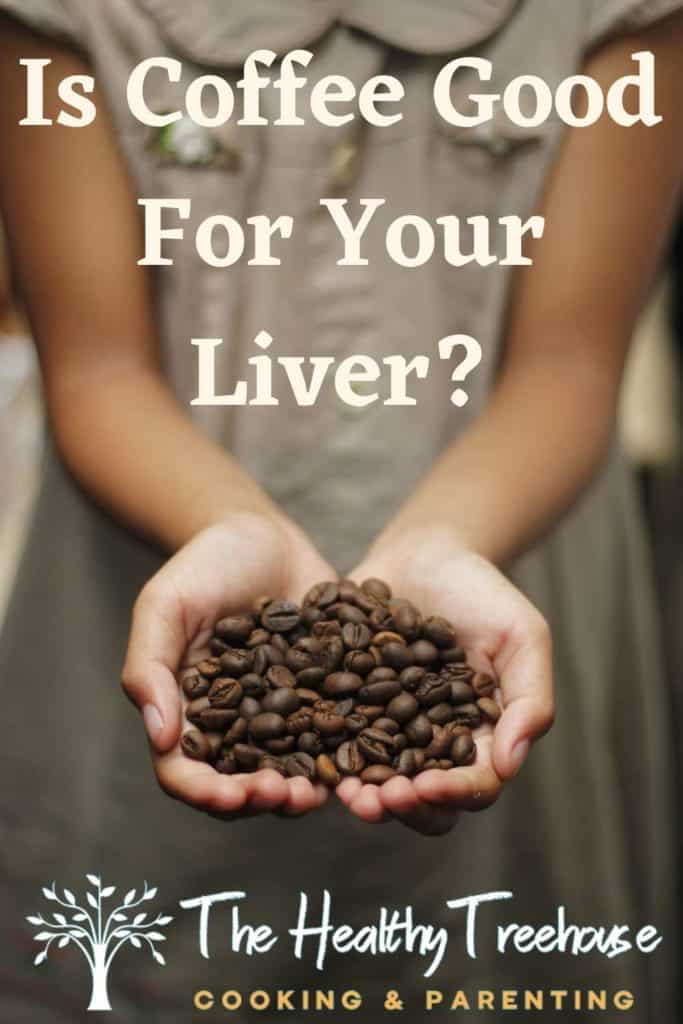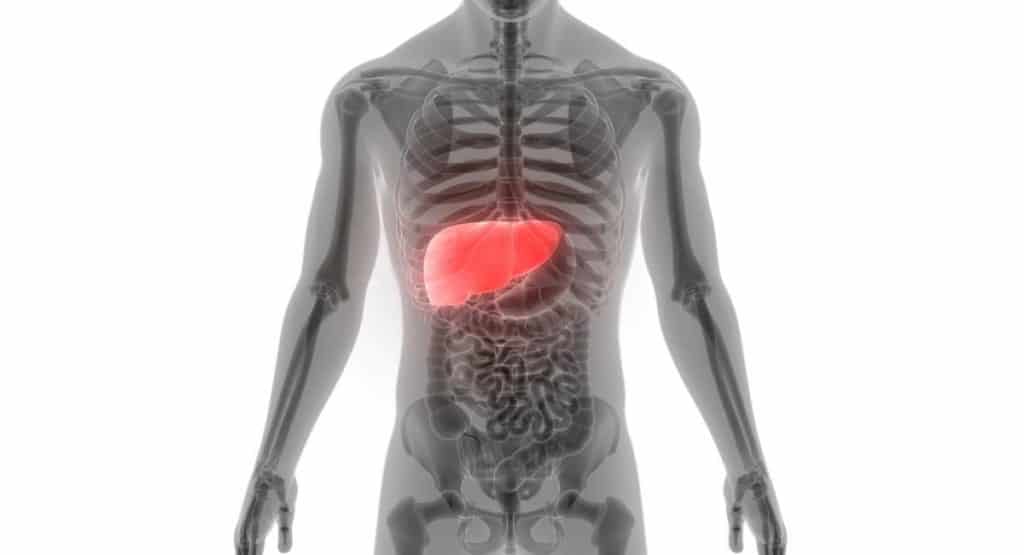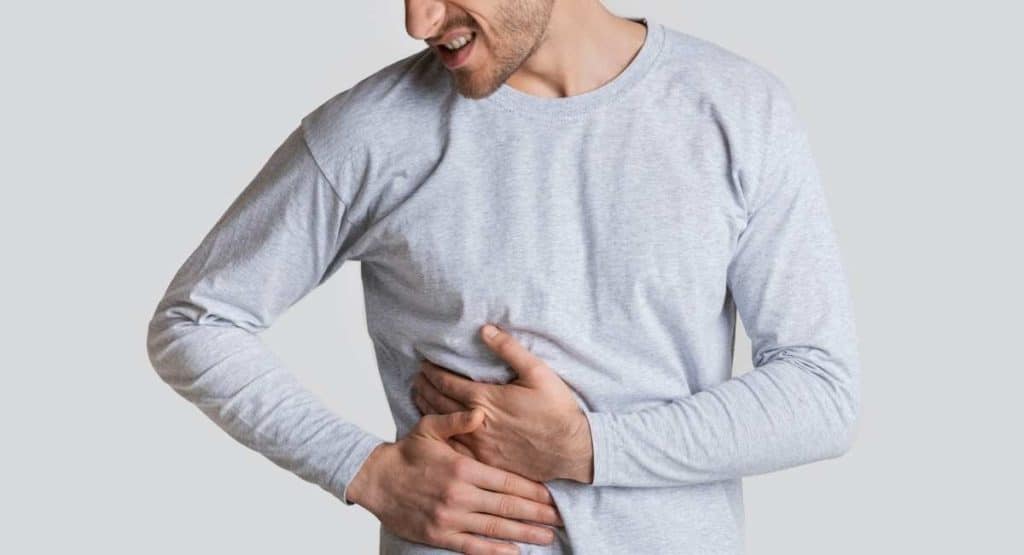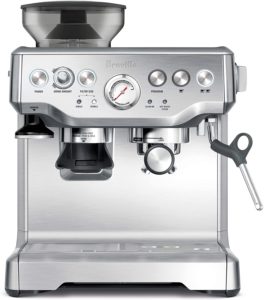
For many of us, our morning routine is the same.
Wake up, get out of bed, and pour a hot cup of coffee.
After so many cups of coffee each morning, I thought, “Is coffee good for my liver, really?”
Our liver is the place where our bodies’ natural detoxification process occurs, and I wondered if coffee affected the effectiveness of the liver.
I also pondered whether or not its consumption heightens the risk of liver cancer, fatty liver disease, chronic liver disease, or how it negatively affects overall liver health.
This sent me into a research frenzy, exploring massive amounts of credible media on the topic, and I wanted to share with you all the parallels between consuming coffee and liver health.
What Does Our Liver Do?

The human liver is a large, football-shaped organ positioned within the rib cage.
It is the organ the helps process and digest food.
This is also the organ that processes drugs, allowing us to feel our Ibuprofen (and other doctor-prescribed medications).
Our liver is also the only organ that has the greatest regenerative ability.
Literally called “liver regeneration”, I was shocked to learn our liver can repair and regrow itself, within limits.
The liver is the primary detoxification organ and is responsible for filtering the blood by removing harmful bacteria, viruses, toxins, and yeast before passing blood on to the rest of our organs and other parts of the body.
Keeping the liver healthy is imperative to your body’s natural detoxification process.
A healthy liver diet is a strong start in keeping any chronic liver disease at bay, however, you should always consult with your doctor before beginning a new diet.
This 7-Day Liver Detox Meal Plan absolutely helps!
Other various roles of the liver:
- Toxin removal
- Fat metabolism
- Storage of blood sugar
- Regulation of the immune system
- Producing bile, which is a liquid that is created in the liver and flows into the gallbladder as the liver’s waste removal system
Summary: Our liver is the vital organ responsible for digestion, filtration of blood, and detoxification.
Is Coffee Consumption Healthy?

Like most things, coffee is good in moderation.
New scientific evidence is showing that coffee consumption is not as unhealthy as previously believed.
Quite a few studies are proposing the many benefits of coffee on one’s health.
Early testing trials for coffee and health studies did not factor in other factors that may contribute to liver disease, such as smoking or living a non-active lifestyle.
Being active and eating a healthy diet is a great way to keep your liver (and other organs) performing optimally.
After adjusting for a more controlled study, researchers found that drinking coffee was associated with better health, including:
- Reduced risk of stroke
- Reduced risk of heart attack
- Reduce the risk of liver cancer and liver diseases
- Reduce the risk of Type 2 Diabetes
- Reduce the risk of Parkinson’s Disease
- Boost metabolic rate
This does not mean coffee should not be drunk in moderation, however.
Coffee contains high amounts of caffeine, which can temporarily raise your blood pressure.
According to experts, coffee and other caffeine drinks should be avoided by pregnant or breastfeeding women, those with high cholesterol, and already high blood pressure.
Summary: Coffee is a healthy beverage with numerous benefits, as long as the consumer is healthy and not pregnant or breastfeeding.
What Are the Symptoms of Liver Disease?

Medical professionals state that people suffering from liver disease or liver damage may feel a variety of symptoms from severe to mild.
Symptoms of liver disease can include:
- Fatigue
- Yellow-coated tongue
- Insomnia
- Constipation
- Skin issues (acne, psoriasis, eczema)
- Yellow tint of the cornea
- Abdominal bloating
- Nausea
- Abdominal fat
- Weight gain
- Indigestion
- Intolerance to fatty foods
- Reflux and heartburn
- Hemorrhoids
- Body odor
- Bad breath
- Gallbladder problems
- Irritability
These symptoms can be common in other ailments as well, so if you suspect you have liver disease, consult with your physician.
What Is Chronic Liver Disease?
Chronic liver disease is irreversible damage to the liver, which happens after prolonged liver harm.
Although we learned that the liver is a regenerative organ, chronic liver disease is classified when damage is “past the point of no return”.
There are a few types of chronic disease of the liver that stem from poor diet, obesity, high cholesterol, alcohol abuse, exposure to toxins, amongst many other causes.
What is Hepatitis?
Hepatitis is a virus that causes inflammation of the liver, with 5 distinct classifications of the disease.
The 5 types of hepatitis are Hepatitis A, B, C, D, and E, all of which affect the liver in some way, with A, B, and C being the most common.
- Hepatitis A – A contagious liver disease that masticates from eating foods contaminated with the fecal matter of an infected individual.
- Hepatitis B – A liver disease spread from the transfer of blood or bodily fluids from one person to another.
- Hepatitis C – A severe liver disease caused by the transfer of bodily fluids from one infected person to another, potentially leading to liver cancer or liver failure.
What is Liver Fibrosis?
Liver fibrosis is the beginning stage of liver damage.
Medical professionals state that liver fibrosis can lead to liver cirrhosis, which can then lead to liver damage, and heighten the risk of liver cancer.
What is Liver Cirrhosis?
Cirrhosis of the liver is a condition caused by scar tissue forming on the liver, with scars replacing healthy liver cells.
Liver cirrhosis is not curable, however, doctors can alleviate most symptoms if caught early.
What is Nonalcoholic Fatty Liver Disease?
Nonalcoholic Fatty Liver Disease, or NAFLD, is an umbrella term for disease of the liver in people who drink little to no alcohol and is characterized by an abnormally high presence of fat cells in the liver.
NAFLD can progress into liver cirrhosis and other liver diseases if left untreated by a qualified medical professional.
If you suspect to have fatty liver disease or any other liver damage, seek medical care.
Summary: Chronic liver disease is irreversible liver damage caused by scarring. NAFLD and hepatitis can be a contributor to chronic disease of the liver, while liver cirrhosis can be a product of NAFLD, liver fibrosis, and hepatitis.

Can Coffee Help Any of These Liver Diseases?
Coffee consumption is associated with improving liver enzymes if you drink 2 cups per day, according to a study by the National Library of Medicine.
Coffee can clinically benefit those already suffering from Hepatitis B and C, NAFLD, and alcoholic fatty liver disease.
This study also concluded that coffee intake is associated with a lower incidence of fibrosis and cirrhosis.
Another study from the National Library of Medicine found that coffee could reduce the ability of hepatitis C cells to replicate.
Can Coffee Consumption Help Reduce the Chance of Developing Liver Disease?
Studies show that coffee drinkers are associated with a lower risk of liver disease in addition to multiple other health benefits, especially if consumed without added sugars.
Coffee intake is good for you, with antioxidant effects and liver benefits being a few of the reasons.
Even decaf coffee offers similar benefits to caffeinated coffee when it comes to liver health.
The key is to drink it in moderation.
Every person is different and every person handles caffeine differently.
I am not saying non-coffee drinkers should blindly begin drinking coffee without speaking to a healthcare professional.
On the contrary, coffee-drinkers should stick with their current routine and talk to a doctor before upping or lowering their intake.
Caffeine intolerance is a real thing where your body does not process caffeine like others, and you may become jittery, have trouble sleeping, or experience an increased heart rate.
Who knew that coffee and liver health go hand-in-hand?
Summary: Moderate coffee intake can help to reduce the risk of liver disease.
How Many Cups of Coffee Should I Drink Per Day for Liver Health?

According to Hopkins Medicine, women can drink 4-5 cups of coffee per day or 400 milligrams per person.
Also, Johns Hopkins Bloomberg School completed a study which concluded that people who drank 3 cups or more of coffee per day had a 21 percent lower chance of requiring hospitalization from liver diseases.
The maximum caffeine amount recommended from that study was also 400 milligrams of caffeine per day.
For reference, one standard 8-ounce cup of coffee has about 95 milligrams of caffeine on average.
Both studies conclude that at least 3 cups per day of coffee may reduce the risk of liver disease by stabilizing healthy enzyme levels in the liver.
Depending on how much coffee you already drink, this amount may seem like a lot of coffee.
More casual coffee drinkers may not fathom drinking multiple cups of coffee per day.
Caffeine-oriented people may think 3 cups of coffee is too little.
You can be over-caffeinated as well, potentially bringing on side-effects such as:
- Insomnia
- Nervousness
- Anxiousness
- Headache
- Muscle tremors
- Fast heartbeat
No matter how much coffee you are accustomed to, it is beneficial to begin incorporating a moderate amount of coffee into your healthy liver routine, after checking with your physician, of course.
Summary: Drink 3-4 cups per day (or 400 milligrams of caffeine) maximum to reap the health benefits of this liquid gold.
Which Type of Coffee is Best for Liver Health?
In a controlled study, the National Library of Medicine found that conventional coffee had the greatest positive effects on a rat’s liver when compared to instant coffee.
In another animal study, Robusta coffee consumption was superior in the health effects of the liver in comparison to Arabica coffee.
Instant coffee mix was found to have potentially adverse effects on metabolic syndrome, likely due to added sugars and powder creamer.
Like most foods THT recommends, your coffee beans or grounds should be as natural, and whole as possible, while also being ethically sourced.
How Much Caffeine is Best for Liver Health?
Caffeine content can also vary greatly just depending on the coffee brand you buy.
Every coffee brand has a different amount of caffeine, so reading the label for caffeine counts will vary from brand to brand.
If you enjoy drinking cups of coffee consistently throughout the morning or afternoon, a lower content of caffeine can be beneficial.
This will allow you to sip on your warm beverage throughout the day without feeling side effects from too much caffeine.
If you like one cup just to wake you up in the morning, a higher caffeine coffee brand might be great.
That way, you can get enough caffeine for the day from that one cup.
Summary: Coffee intake should be natural and whole, and will depend on the amount of caffeine in your chosen brand.
Can I Add Other Healthy Ingredients to my Coffee?
Do you take cream or sugar?
Some believe that cream and sugar are the only accouterments for a cup of coffee, but that is not true!
There are tons of healthy alternatives to keep your coffee healthiest for your liver health.
Hopkins Medicine recommends up to two tablespoons of milk, half and half, or non-dairy creamer to add a creamy element to your coffee.
For sweetness, naturally sweet ingredients are recommended in place of sugar such as:
- Cinnamon
- Cardamom
- Vanilla extract
- Cocoa powder
For those of you who drink your coffee black, you don’t have to worry about any additional ingredients in your mug.
Summary: The best coffee for liver health will depend on how much caffeine you wish you consume daily. Always limit your coffee add-ins to healthy and natural ingredients.
How to Make the Best Tasting Coffee for Liver Health
- Grind your whole coffee beans with a coffee grinder, if you prefer.
- Fill the desired amount into your coffee maker, whether it’s a whole pot or a single-serve maker.
- Brew as normal.
- Add healthy flavorings mentioned above or two tablespoons of a natural or organic cream or plant-based creamer. Avoid any sugar!
- Sip and enjoy!
The bottom line exclaimed by researchers to increase liver health is to not add any additional sugars to your coffee.
A French press (I have this one, which I use with these filters) or other unfiltered coffee brewing is acceptable, however, according to the Harvard, unfiltered coffee may affect the different cholesterols in our bodies if you drink more than four cups a day.
Summary: Adding all-natural ingredients without sugar is the best way to make coffee for liver health.
Other Helpful Information
Start with a great coffee maker on your liver health journey.
The Mr. Coffee 12-Cup Coffee Maker is a great simple design.
I prefer a single-cup coffee maker.
The Keurig K-Classic Single Coffee Maker is one of the top individual coffee makers, which I also happen to own.
Coffee drinkers can never have enough coffee equipment!
Whole-bean lovers will need a quality coffee grinder for grinding those sweet beans, and this Electric Spice and Coffee Grinder is the perfect machine for such a task.
To keep your ground coffee and coffee beans fresh, an airtight canister prevents any spoilage while stylishly storing your caffeine.
Since many of us are now working from home, it’s easy to let your coffee get cold during busy times.
If you drink your coffee slowly over several hours (something that I never seem capable of doing), then a smart mug warmer will keep your coffee at the perfect temperature.
Sure, coffee making takes some investments, but your homemade coffee will taste better than every drive-thru option out there.

End with a Cup of Joe
Healthy amounts of coffee consumption are associated with a lower risk of developing liver disease, according to experts.
Coffee consumption can lead to a reduction in the risk of fatty liver disease, liver cancer, cirrhosis, fibrosis, and other liver diseases.
2-4 cups of coffee a day or around 400 milligrams of caffeine is the perfect amount to aim for, as this will provide optimal liver health benefits, studies show.
Be sure to not load your coffee with sugar or other unhealthy ingredients; coffee is good on its own or with some natural additives.
As if you needed another reason to enjoy your morning joe every morning, liver health is the new, cool reason to drink coffee!



